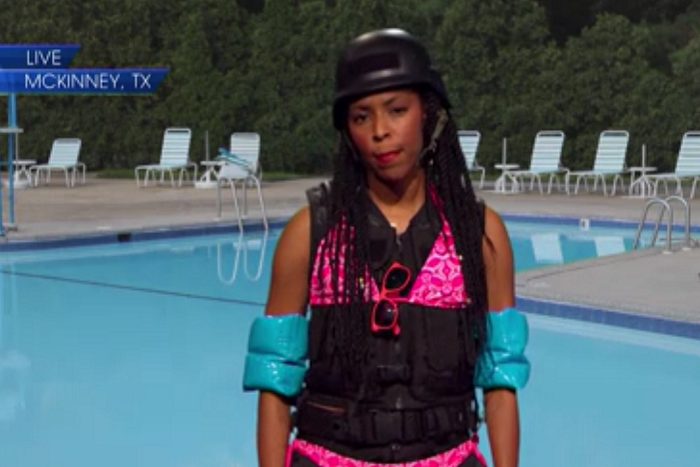The Criminalization of Black Youth: Responses to Police Violence in McKinney
Whether we are being charged for cheering at a graduation or treated like delinquents for attending a pool party, this week has been a reminder that Black people are still criminalized for being human.

Once again, another video of an overly aggressive police officer using excessive force on unarmed Black citizens has gone viral. This time, the incident was in McKinney, Texas, where Officer Eric Casebolt was caught on film cursing and drawing his firearm at young Black kids who were attending a pool party, and wrestling a 15-year-old Black girl to the ground. The incident has become a reminder that Black lives are still under attack. Whether we are being charged for cheering at a graduation or treated like delinquents for attending a pool party, this week has been a reminder that Black people are still criminalized for being human.
Thankfully, many writers are shining a light on the root causes of such violence, exposing how the events of today are linked to our nation’s troubled past. What happened in McKinney is just another example of persistent racial stereotyping and police brutality that needs to end.
At the Atlantic, Yoni Appelbaum looks at the history of segregated swimming pools in the United States, writing: “Whatever took place in McKinney on Friday, it occurred against this backdrop of the privatization of once-public facilities, giving residents the expectation of control over who sunbathes or doggie-paddles alongside them.”
Zeba Blay, in a Huffington Post article, reminds us that for many Black women and girls like the 15-year-old who was manhandled by Casebolt, police brutality and sexual violence tend to go hand in hand.
Elsewhere, on Salon, Brittney Cooper explains how we would never see a cop force a young white girl dressed in a bikini to the ground. She writes, “Black girls are never deemed feminine enough for their sexual and adolescent vulnerability to register for white people.”
And Jamil Smith, senior editor at the New Republic, connects the McKinney incident to the arrest of Kalief Browder, who committed suicide over the weekend after years of abuse while in prison, and explains how white fear is scarring Black youth at best and killing them at worst. “We cannot stop being black,” Smith writes, “so the change will have to come from the other side.”
Over at Fusion, Latoya Peterson says while watching a different video related to the incident, she relived a similar experience she had as a child, adding how it’s a painful reminder that “there are few people [Black youth] can call for protection, few they can trust.”
The National Bar Association calls on McKinney Mayor Brian Loughmiller and Police Chief Greg Conley to fire Eric Casebolt due to his reckless and violent behavior with teenagers.
Thousands of protesters gather around McKinney to rally against police brutality.
Due to public outcry, Officer Eric Casebolt resigns.
But according to Dajerria Becton, the 15-year-old girl Officer Casebolt yanked to the ground, “him getting fired is not enough.”
Here’s the Nightly Show host Larry Wilmore condemning Fox News for its insensitive way of handling the story.
Daily Show correspondent Jessica Williams, clad in full body armor underneath a bikini, finds some positivity in all this, saying: “It’s progress because a cop pulled a gun on a group of Black kids and nobody is dead.”
And lastly, Jenée Desmond-Harris at Vox points to a silver lining in this entire incident: the fact that white teens are standing in solidarity with their Black peers and fighting against the racism many Black people face. “The kids’ reactions were encouraging,” writes Desmond-Harris. “Take note, adults.”

